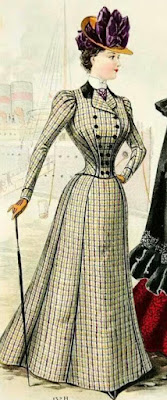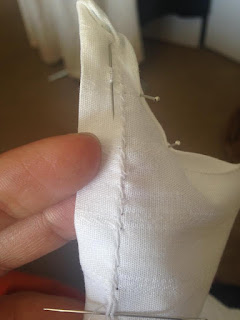Diversify Our Narratives Conference
On September 5th, I participated in a very unique and groundbreaking workshop at Historic London Town & Gardens called, Decolonizing Our Museums: Perspectives on Diversifying Our Narratives. This was presented by the Four Rivers Education Committee of Annapolis, MD. The workshop's goal was to initially address the issues most living history museums face in not having the proper resources and information needed to better interpret the histories of people of color and other marginalized groups that are often overlooked or sugar-coated.
With a wonderful team on the panel, we each gave our perspectives based on our knowledge of each subject, our lifestyle, and our experiences inside and outside the museums' atmosphere: Indigenous Peoples of maryland's from the perspective of Crystal Nkechehosi Proctor, Asian history and interpretation in 18th century America from the perspective of Daniel Sieh, African-American Interpretation in Public History from my perspective, and LBGTQ+ History and Interpretation from Dr. Christopher Mielke PHD.
 |
| Crystal Nkechehosi Proctor, Daniel Sieh, Omar Hernendez, Me, Dr. Christopher Mielke PHD. |
This was a very deep and emotional panel that was very eye opening not only to the panelists, but also to the audience. It was almost therapeutic because we were ripping off the proverbial bandaids by addressing the elephant in the room: what were the issues we were experiencing when we visit museums; how are these groups being interpreted, what attitudes need to be changed (addressing the perception and the way of thinking when it comes to how we see these marginalized groups on a daily basis or in a text book), how textbooks and school curriculums are currently inaccurate when it comes to talking about the histories of these groups (why are they omitted or sugar coated instead of just telling it like it is?) As far as discussing personal experiences and how to interpret that into an educative tool, I openly discussed my personal experiences as a black interpreter and how portraying an enslaved woman molded me into to getting a better understanding of what some of my ancestors went through. The emotional and psychological trauma I experienced temporarily, when I did my first immersion exercise, was nowhere in comparison to what they experienced throughout their entire lives (I am privileged to have the choice of whether or not I want to portray a slave or a free woman, and can stop if it's getting to be too much for me... they didn't.) By having that experience first hand, I am able to teach in a way where my audience can feel and comprehend what I'm talking about, and what I felt, and what my ancestors felt because of perspective and first person experience.
The question and answer segment was phenomenal! Everyone in the audience had SO many hard-hitting questions for myself and the panelists and the moderator that we ran out of time and never had the opportunity to move on to the rest of the workshop. With that being said, I said that this first annual workshop was a great success, and I hope that we'll get to continue on with the discussion and maybe add on more panelists from other groups.

.jpg)


Comments
Post a Comment